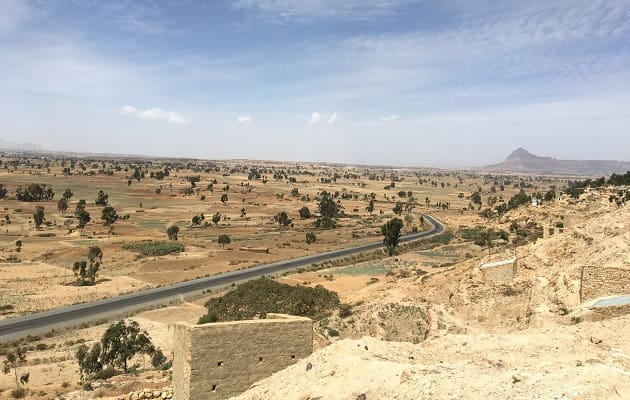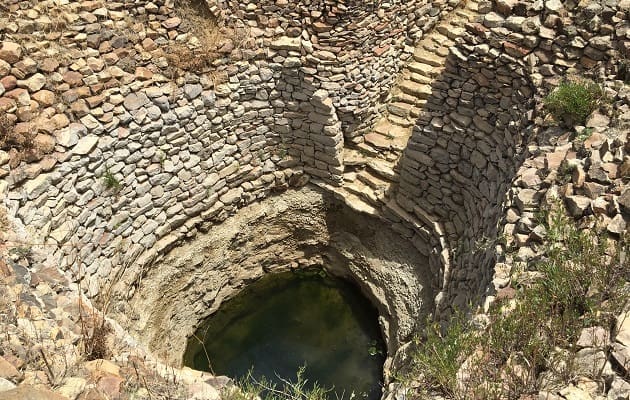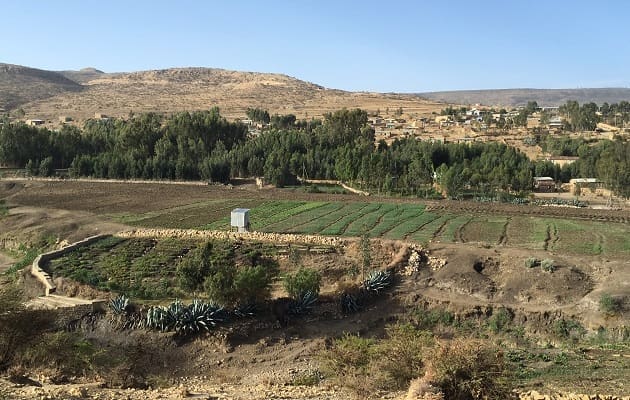As soon as I arrived in Ethiopia’s Tigray region I could already feel the dust in the air.
While it’s widely reported that the effects of this season’s El Niño are some of the most significant in recent memory, different regions of the world are experiencing it in different ways—in Northern Ethiopia this means drought.
Drought is unfortunately a familiar event in Tigray, whose impact the international community will most likely recall from the 1983-85 Ethiopian famine. In the years since then, both the regional and national governments have made significant gains in drought mitigation measures, which in turn, has meant dealing with this season’s drought has been much less of a strain on the people whose livelihoods depend on seasonal rainfall in order to feed themselves and their communities.
One of the means, by which governing authorities have been able to mitigate the effects of drought in Tigray, is through mass mobilization campaigns. Researchers at MetaMeta Research, along with partners at Mekelle University, have spent the past several years working with local jurisdictions to train them on how to leverage communities of farmers during the dry season to construct smart infrastructure that will divert rainwater runoff from newly constructed roads for productive agricultural uses. While community organizing for mutual benefit is not a new concept, the team of researchers has been meticulous in documenting the learnings from this exercise in order to plan for adoption on a larger scale.
In September, 2015 the MetaMeta led collaborative was announced as one of winning eight teams in the Global Resilience Challenge. Visiting the team on the ground in Tigray, I was particularly impressed with the progress made to-date in building the adaptive capacity of these roadside farming communities through several different techniques, including:
- Flood Water Spreaders from road surface to enhance soil moisture and recharge groundwater
- Water Spreaders from culverts for supplemental irrigation
- Water Storage Ponds for groundwater recharge
- Check dams to store groundwater upstream
As these new techniques become mainstream across the region, farmers are beginning to understand the benefits of how smart infrastructure investment will enable them to become more resilient in the face of unknown precipitation patterns in the future. Going forward, the Partnership is eager to learn how MetaMeta Research will apply these lessons as they expand the scope of their project from Ethiopia to Kenya, where a different governance structure will mean a different approach will be necessary in order to disseminate knowledge about these various techniques.
As I concluded my inspiring four day visit, I was struck by the fact that despite the immediate threat of potential drought, these roadside communities were optimistic that the knowledge they’ve gained has enabled them to make investments in their future food security.




Leave a comment